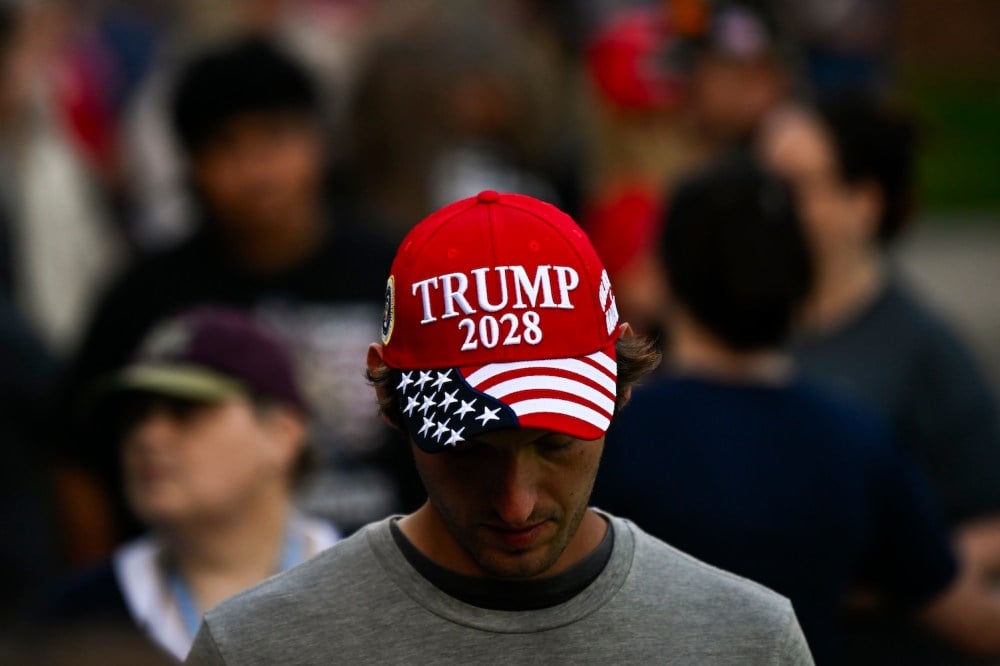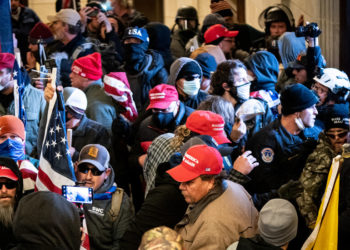From the earliest days of his rule, Chinese President Xi Jinping has made a regular practice of purging senior members of his country’s military hierarchy. He has invoked corruption in opaque legal proceedings and presided over their public disgrace, banishment from the Chinese Communist Party, and imprisonment. In almost every instance, Xi and the propaganda apparatus that is devoted to him have pounded away at strengthening political control over China’s armed forces.
One of the most important tasks of any China scholar these days is discerning why Xi is so preoccupied with concentrating so much power in his own hands, and, in particular, ensuring obeisance from the military. Most commonly cited among his possible motives is something that Xi himself routinely invokes: the need to ensure Chinese preparedness for and eventual success in any fight over the future of Taiwan.
It is unlikely that this altogether explains Xi’s driven sense of purpose, though. To me, his motivation seems to be at least equally fed by a desire to perpetuate his own rule, which depends on thoroughly preempting any questioning of his personal authority. In Xi’s mind, maintaining absolute control of the gun, in the parlance of Mao Zedong, seems to be a minimum prerequisite for this. The Chinese leader has already thrown out the rule book that once governed Chinese political succession to two five-year mandates and is barreling toward what would be his fourth term in office, if he subjects himself to the formality of a “reelection” by party leaders, as expected, in 2028.
In past columns, I have written about the ways in which U.S. President Donald Trump’s second term seems to have borrowed from the playbook of elite politics in China, which is marked by both musclebound authoritarianism and highly personalized rule. One of the clearest signs of this has been the hollowing out of government institutions in favor of administration by political hacks who are loyal to a leader, similar to Mao during the Cultural Revolution.
But in recent days, it has become apparent that Trump is drawing even more dire lessons from China—ones that plausibly mirror Xi’s obsession with exerting political power both upon and through the national security apparatus. This has been seen in the speeches by Trump and his defense secretary, Pete Hegseth, to an enormous and unusual convocation of top U.S. military brass last week in Quantico, along with the unleashing of the National Guard and agents from U.S. Immigration and Customs Enforcement and other federal agencies on several U.S. cities.
Today, Americans, and indeed the world, must prepare for the eventuality that Trump shares the goal of self-perpetuation in power with his Chinese counterpart. When Trump recently met with congressional leaders, including Democratic Sen. Chuck Schumer and Rep. Hakeem Jeffries, he sat his guests at a table that prominently displayed hats with the slogan “Trump 2028.”
For a while, language about a third term for Trump, which recurs in his public musings and the rhetoric of his most fervent partisans, was widely passed off as a joke. But if onlookers were ever able to dismiss such talk this way, that time has passed.
A great deal of commentary about the Trump-Hegseth event at Quantico has centered on the defense secretary’s ill-placed emphasis on physical fitness in the ranks and on a right-wing agenda of political correctness over gender and diversity issues. Even some conservative outlets called Hegseth’s stage-strutting performance an embarrassment. But it was Trump’s insistence that the U.S. military had a role to play in combatting what he called the “enemy from within” that was the most portentous moment of the day by far.
In defiance of long-standing tradition and laws, such as the 1878 Posse Comitatus Act, which bars the use of U.S. troops in domestic law enforcement, Trump called for the military to begin using the nation’s cities as supposed training grounds for its operations.
Yet this seems to have less to do with training than it does with Trump’s Xi-style fixation on reorienting the military to support his personal political agenda and guaranteeing its loyalty. Warning signs about a U.S. slide toward authoritarianism under Trump are far from new, but the president’s dangerous words and recent actions commanding the militarization of domestic order represent one of the most consequential challenges to U.S. democracy in generations.
In a television interview this week, Illinois Gov. JB Pritzker warned that the ongoing deployment of military personnel in U.S. cities was intended to normalize the use of the armed forces in domestic order. “Next year, I fear that what they’re going to do is deploy these folks eventually to polling places and say they’re protecting the vote,” he said. If the Republican Party loses control of Congress in the 2026 midterm elections, he added, Trump may “do what he said he might do in 2020, which is use the military to confiscate the ballot boxes and count the votes, claiming that there’s fraud.”
Recent weeks have seen a blizzard of other Trump actions that also warrant heightened concerns about his thirst for power, his impatience with checks and balances, and his disregard for the truth.
Beyond pressing ahead with recent attempts to assert militarized control of urban centers in the face of federal court injunctions, Trump and his supporters have invoked the specter of antifa, a loosely organized and evanescent-seeming movement of anti-fascists and anarchists, to justify the use of violent tactics against people protesting his policies.
The federalization of law enforcement has also taken aim at suspected undocumented immigrants and anyone who mobilizes to support their rights to due process and humane treatment. Such tactics were recently pushed to the extreme in Chicago, where people in poor neighborhoods have been rousted from their apartments or rounded up on the street on the suspicion of being in the country illegally—often, from what one can tell, merely on the basis of their skin color, language, or income level.
Meanwhile, as Trump has expressed open hatred toward those who oppose him, he has weaponized the federal budget, punishing states that have traditionally favored the Democratic Party and freezing or canceling major infrastructure work and other projects.
Even with this many warning signs flashing red, the Trump administration’s recent moves to bend the U.S. armed forces—a politically neutral actor by design and tradition—to its purposes remains its most dangerous project.
With his repeated high-level purges of the People’s Liberation Army, Xi has used corruption to remove those he wishes to eliminate and make way for officers ever more personally beholden to him. So far, Trump has been more vague and circumspect than his Chinese counterpart, providing precious little detail about the alleged failings of the military officers who have recently been removed. In Xi’s case, almost all the high-level purges have been followed by trials, however opaque or formalistic.
As defense secretary, Hegseth has dismissed highly experienced and decorated officers for no more discernable reason than for being Black, in the case of Gen. Charles Brown Jr., the former chairman of the Joint Chiefs of Staff, or for being women, in the cases of Adm. Linda Fagan, commandant of the Coast Guard, and Adm. Lisa Franchetti, chief of naval operations.
No overt ideological test for promotion or job security has been applied yet in the high ranks of the armed forces, but an implicit alignment with Trump’s politics, and not just obedience to the chain of command, seems to be the expectation. There is reason to be wary that the administration’s frequent disparagement of ethnic and gender diversity in the military, like Xi’s invocation of corruption, is being used as cover for a broader, more partisan agenda and Trump’s personal domination of the armed forces.
“More leadership changes will be made, of that I’m certain, not because we want to but because we must,” Hegseth told the gathering of U.S. officers at Quantico. “Once again, this is life and death. The sooner we have the right people, the sooner we can advance the right policies.” A moment later, he added, “If the words I am speaking today are making your heart sink, then you should do the honorable thing and resign.”
The post ‘Trump 2028’ Is No Joke appeared first on Foreign Policy.




